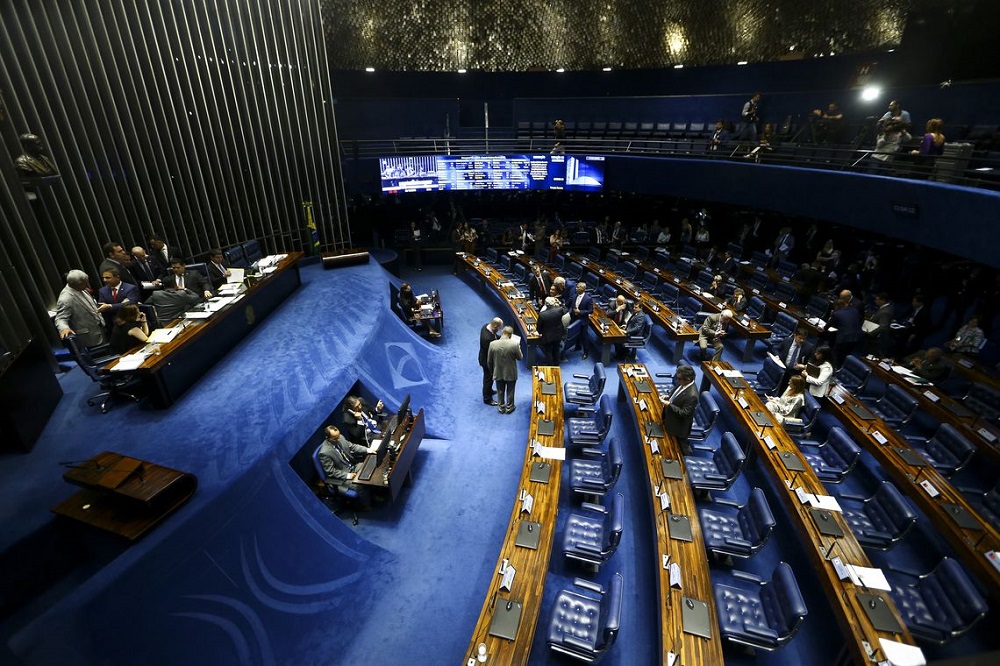RIO DE JANEIRO, BRAZIL – Following the voting on the main proposal to reform the social welfare system, the Senate wants to focus its efforts on the agenda of the so-called New Federative Pact, which has been under discussion for months between the President of the Senate, Davi Alcolumbre, government leaders and the Minister of Economy, Paulo Guedes.
“Now we move on to the federative pact, with several dimensions,” Guedes said.

The revision of the federative pact intends to give more money to states and municipalities, as well as disengaging and decoupling certain expenses from the budget.
“Next week, you [journalists] will have everything,” Guedes said briefly, after the second round vote on the main text of the Social Welfare Reform last Tuesday, October 22nd.
Next Tuesday, October 29th, Guedes is expected to attend the Senate leaders’ meeting.
At the meeting, which should also include the presence of Chamber President Rodrigo Maia, three proposals to amend the Constitution (PEC) will be submitted, according to the government leader in the Senate, Senator Fernando Bezerra Coelho, in an effort to make room for investment.
“We expect to approve the measures of the New Federative Pact in the Senate by late November or early December,” said Bezerra.
Proposals
The first PEC changes the so-called “golden rule” – a tool that prohibits the federal government from borrowing to pay current expenses, such as civil service salaries, retirement benefits, electricity bills and other costs of the machinery of government.
When breached, the administration’s leaders and even the president may be deemed to have committed a “crime of responsibility” (subject to impeachment). The proposal includes triggers that increase fiscal oversight in order to contain rises in mandatory spending, mainly on public workers and social benefits.
The second PEC, considered the most complex of the three, provides a kind of “golden rule” for the states. For the government leader in the Senate, the Fiscal Responsibility Law, almost 20 years old, has not been able to prevent the financial breakdown of several Brazilian states and many municipalities.
It is expected that the norm will generate a culture of fiscal responsibility.
The proposal establishes the Fiscal Council of the Republic, made up of the heads of the three branches of government, and provides for a series of tough measures to avert financial emergency situations, such as reducing personnel expenses and rebalancing social welfare accounts. The text also improves the procedures for monitoring state accounts.
The third PEC will propose a wide-ranging review of constitutional and infra-constitutional funds. Today, there are 260 such funds. According to Bezerra Coelho, infra-constitutional funds alone collect more than R$20 billion per year.
The goal is to preserve constitutional funds. “By the time the [constitutional] funds run out, there are more than R$20 billion in investments and discretionary expenses to cover the priority areas, such as education, health, and infrastructure. Congress will be able to redesign the funds, but it is expected that the constitutional ones will be preserved. It will be up to Congress to moderate gradually the size of this change,” he said.

Among opposition senators, despite defending the need to divide the funding cake more equitably and fairly, the details of the government’s proposals are still an unknown fact.
One of the concerns regarding changes in the golden rule is whether they will come with other measures such as the end of employee tenure rights and the prohibition of raises for public servants.
Source: Agência Brasil

